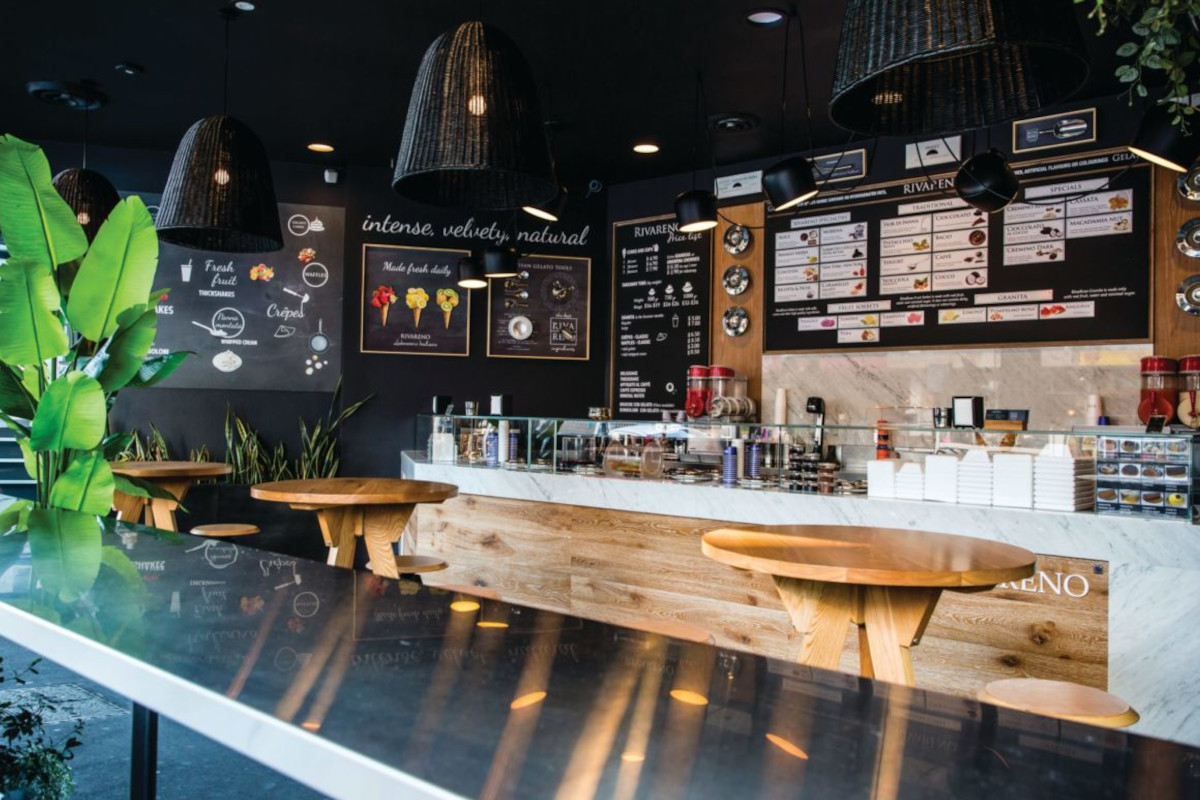
When it comes to dessert lovers, Italy is known all over the world for gelato, panettone, and pastries. This is one of the keys to the success of some Italian restaurant chains that have managed to conquer foreign markets with their outlets, or whose products are protagonists on the shelves of the most prestigious luxury retailers.
CIOCCOLATITALIANI AND RIVARENO’S GELATO
There are 19 Cioccolatitaliani stores around the world, mainly in the Middle East and the Balkans. “Our development is mainly driven by franchise applications,” explains Vincenzo Ferrieri, founder and CEO of the brand. “The big news this year is direct investment, for which we have begun a feasibility study in France, Germany, and Spain.” Penetration of historic markets such as Saudi Arabia, one of the top performers, is going on too. “Our stores in the Middle East are much larger. They are designed for long stops because local customers are not used to consuming at the counter, but rather at the table.”
RivaReno (pictured above), on the other hand, has as many as 16 stores. “Until a year ago, our development was characterized by spontaneous requests for membership,” Nicola Greco, founder of the brand, explains. “Last year we entered into a relationship with Affilya, an Italian franchise development company. Now we are developing an international focus for expansion primarily in European markets. There is, of course, oversight of suppliers, who cannot be outside our standards.”
One example is Serge Milano, famous for its gourmet cannoncini, with two stores in Italy and one in Riyadh: “We need to develop an ad hoc formula for franchising in the Middle East, paying particular attention to the issue of transportation prices which have a huge impact on business there. In Europe, we could opt for less expensive road transport instead”. All this shows that there is room in foreign markets for niche pastry products, not just bestsellers such as gelato and panettone.

BIANCO LATTE EXPERIENCE IN NEW YORK
Pastry chef and founder of Bianco Latte Andrea Zanin can boast two shops in New York and one soon to open in Miami. Doing business in the States means a profound mindset change. “The business system is very simple, bureaucracy is at a minimum, but the complexities are different compared to Italy. For renting premises it is impossible not to involve a lawyer”, says Zanin. Human capital management also requires a paradigm shift: “The American economy is based on procedures: each worker performs a specific task. This gives the individual the ability to specialize quickly while the company can manage know-how that is not available to everyone. It is a functional system that has made the United States the world’s leading economic power, but it obviously has its limits. The reason why Italians who come here often become managers is that they know how to be cross-functional. Where the American asks his superior to intervene because a certain contingency is outside his job description, the Italian knows how to take the initiative,” Zanin says.
